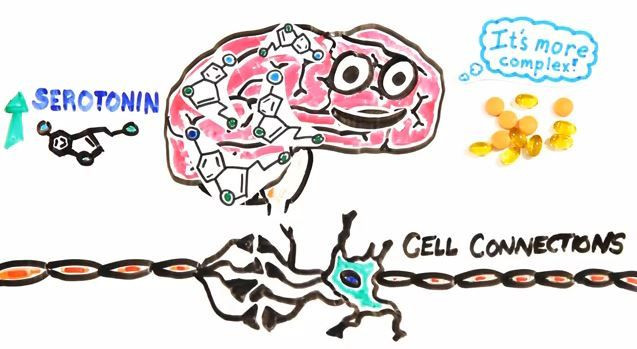The Science Of Depression: The Biology Behind A Darker Mind

Depression has a miserable array of misguided stigmas and criticism surrounding its diagnosis. Some believe depression is a prolonged bad mood or just someone’s negative outlook on life, but it’s so much more than that and science has proven it. A new video produced by AsapSCIENCE reveals the truths and myths behind depression and uses science to back them up.
The ancient Greeks believed depression was a result of fluid imbalances of blood, phlegm, yellow and black bile. Meanwhile, early Christianity just threw the blame of the devil for man’s suffering, which resulted from their internal battle to fight the temptations of sin. Finally, Renaissance rolled around and scholars, such as Robert Burton, began to recognize the depression as a disease, but since then, attitudes and misconceptions have changed throughout history until we reached modern times when we came to understand there’s something far more complicated than a simple chemical imbalance behind this darkening disorder.
Scientists suspected low levels of serotonin, the neurotransmitter responsible for feelings of elation and happiness, was the cause. When they fed depression patients drugs filled with serotonin, some of them started feeling better, so they thought they had it all figured out, but then they took a closer look and realized there was something irregular about their hippocampus. This seahorse-shaped structure in the brain is responsible for memory and emotion, and those who were depressed tended to have smaller ones. Even worse, the longer they were depressed, the smaller the hippocampus shrunk in size, ultimately limiting its ability. By stimulating the growth of the hippocampus with new neurons, patients were happier and healthier.
The complication goes on once you get into the genetics of depression, which makes it a heritable disease from either or both of your parents. The shorter your serotonin transmitter gene, the more likely you’ll become depressed, especially when life events place stress and anguish upon a person.
Every year, five to eight percent of the United States' adult population is depressed, which accounts for approximately 25 million people and a total of 350 million worldwide; however, only a half of them actually get any treatment, according to the National Alliance on Mental Health. Without treatment, depression tightens its talons into the minds of millions and worsens symptoms, eventually leading to severe levels of depression that only worsen over time.
When people arrive on the embankment of depression, the shores are dark, the sky is gray, and the setting sunset on the horizon brings nothing but seasickness. The metaphorical life preserver of support systems, drugs, and therapy treatments can only help some, while others drown beneath their disorder by taking their own lives, such as the recently departed comedic genius and Academy award-winning actor, Robin Williams.
Published by Medicaldaily.com



























